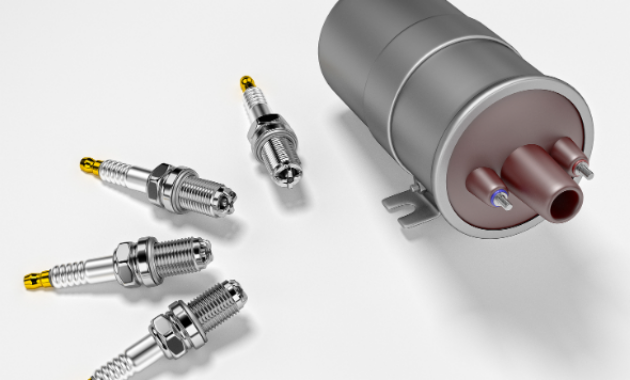In the world of vehicle maintenance, many car owners often wonder, “Are coil packs and spark plugs the same?” Although both parts are integral to the ignition system of your vehicle, they perform distinct functions. Understanding the difference is essential for maintaining a healthy engine and knowing when replacements are necessary.

What Are Coil Packs?
A coil pack, also known as an ignition coil, is an electronic component that converts the low voltage from the battery into the high voltage needed to create a spark. Coil packs have largely replaced the older ignition systems in modern cars, which used a single coil for all cylinders. Instead, coil packs distribute electricity to each spark plug individually, improving engine performance and efficiency.
What Are Spark Plugs?
The spark plug plays a critical role in the combustion process of an internal combustion engine. Its job is to create a small spark that ignites the air-fuel mixture in the engine’s cylinders. Without the spark plug, the combustion process wouldn’t start, and your engine wouldn’t run.
Are Coil Packs and Spark Plugs the Same?
Despite their close relationship in the ignition system, coil packs and spark plugs are not the same. They are two different components with distinct roles:
- Function: The ignition coil (or coil pack) generates high-voltage electricity, while the spark plug uses that voltage to ignite the air-fuel mixture.
- Location: Coil packs are mounted on top of the engine near the spark plugs, whereas spark plugs are threaded into the engine block.
- Maintenance: Spark plugs require more frequent replacement, usually every 30,000 to 100,000 miles, depending on the type. Coil packs typically last longer but can fail over time.
How Do Ignition Coils and Spark Plugs Work Together?
Both components are essential to your car’s ignition process. The ignition coil transforms the battery’s low voltage into the thousands of volts needed to create a spark. The spark plug then uses that high voltage to ignite the air-fuel mixture in the cylinder, starting the combustion process. Without the ignition coil, the spark plug wouldn’t have the power to create a spark, and without the spark plug, the ignition coil’s electricity wouldn’t be put to use.
When Should You Replace Coil Packs and Spark Plugs?
Knowing when to replace your coil packs and spark plugs is crucial for maintaining engine performance. Spark plugs usually need replacement more frequently, while coil packs last longer but can still wear out. You may want to consider replacing them together to avoid future engine misfires. Learn more in our detailed guide on when to replace ignition coils and spark plugs together.
Ignition Coil vs Spark Plug: Key Differences
If you’re curious about the exact differences between the two components, check out our comprehensive comparison on ignition coil vs spark plug, which explains how each part contributes to your engine’s functionality.
Do You Need to Replace Ignition Coils With Spark Plugs?
This is a common question that arises during maintenance. While it’s not always necessary to replace both simultaneously, there are situations where doing so can help avoid future issues. If you want to know when it makes sense to replace both, check out our article on whether you should replace ignition coils with spark plugs.
Conclusion
In conclusion, while coil packs and spark plugs are often mentioned together, they are distinct components that work together to keep your car’s engine running efficiently. Understanding their differences and knowing when to replace them is key to preventing engine issues. For a deeper dive into this topic, explore our related articles on ignition coils and spark plugs for more insights.
Need more information on car maintenance and the roles of these essential parts? Read our guide on ignition coils vs spark plug wires for further insights.

One thought on “Are Coil Packs and Spark Plugs the Same?”